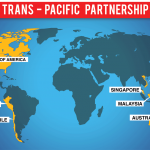 Whilst most organizations claim to want candid feedback on poor, even negligent, performance, the reality remains that doing so can leave the whistle blower in a very precarious position.
Whilst most organizations claim to want candid feedback on poor, even negligent, performance, the reality remains that doing so can leave the whistle blower in a very precarious position.
Maybe there is something for managers to learn from the notorious whistle blowing website WikiLeaks, who recently launched a program to crowdfund the leaking of various documents.
The first project under the scheme is hoping to raise a $100,000 bounty via the crowd, for the first person who leaks the draft document of the Trans-Pacific Partnership (TPP) trade arrangement.
About TPP
The TPP trade deal is one of two major trade deals America is currently negotiating, alongside the TTIP deal with the EU, and involves Australia, Canada, Japan, Chile, Mexico, New Zealand, Malaysia, Peru, Vietnam and Singapore.
As with the TTIP trade deal with Europe, there appears to be as much myth surrounding it as there is any hard facts, and as such there is a great deal of uncertainty around just how beneficial the deal will be, either to the citizens of each nation or to things like the environment of each country.
As with the European trade deal, negotiations are largely being done behind closed doors, and whilst the EU are trying to increase transparency levels around TTIP, there is still a clear desire from Wikileaks for more to be done regarding TPP.
The site reveals that just three of the 29 chapters in the deal have found their way into the public domain, and they are striving to do more, and with a final deal expected to be passed within weeks, time is of the essence.
Hence the launch of a crowdfunded project to raise the $100,000 bounty to prompt a whistle blower to speak up.
“The transparency clock has run out on the TPP,” site founder Julian Assange said. “No more secrecy. No more excuses. Let’s open the TPP once and for all.”
Nearly $50,000 has been raised thus far, although it isn’t particularly clear just how firm a commitment this is, as donors are only required to provide an email address to make their ‘pledge’.
It’s an interesting concept, and I suspect your feelings on its merit rests on how worthy and just you regard Wikileaks to be as a project.
Would a similar concept work within companies? We’ve seen organizations pay employees to leave in the past, but none that I know of have ever offered a bounty to employees for exposing poor practice.
Maybe it’s something for managers to think about?
Well TTIP seems a whole lot less controversial than the fear mongers would have you believe, so I think I'll keep my money where it is thanks.
I sympathise with their cause, but I wouldn't trust Wikileaks as far as I could throw them.